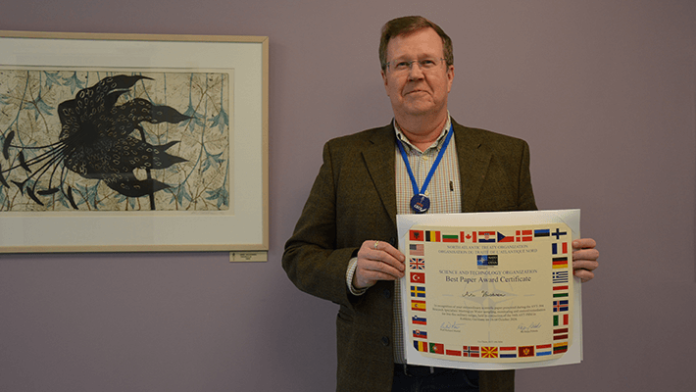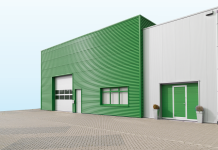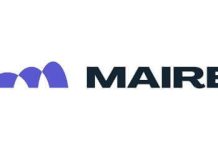
NATO awarded the best scientific publication prize to Professor Ari Väisänen and his research team from the University of Jyväskylä, Finland, for their pioneering work on cleaning metal-contaminated waters using 3D metal scavengers. This recognition was part of an expert meeting organized by NATO to discuss sustainability efforts at military shooting ranges and explore methods to reduce environmental impacts.
NATO’s Expert Meeting on Environmental Sustainability
From October 14–16, 2024, NATO hosted an expert meeting in Koblenz, Germany, with the primary aim of promoting sustainable practices in military training areas.
The event focused on finding innovative solutions for environmental challenges, specifically concerning aquatic sampling, monitoring, and restoration techniques.
Experts and researchers from various fields came together to share knowledge and collaborate on improving environmental protection practices in military settings.
As part of the event, NATO awarded the best scientific article prize, which went to Professor Ari Väisänen and his research team.
The winning article explored the application of 3D metal scavengers in removing harmful metal residues from wastewater generated by military shooting ranges and rocket launcher cleaning operations.
Research Collaboration
The research article resulted from a collaboration between the University of Jyväskylä, the Finnish Defence Force’s logistics headquarters, and the military estate administration.
The partnership aimed to address environmental concerns related to the military’s impact on water bodies.
Alongside Väisänen, the study’s co-authors included Doctoral Researcher Jutta Koskinen and Elmeri Lahtinen from Weeefiner Ltd.
The focus of the research was on developing and testing 3D metal scavengers—innovative devices designed to remove heavy metal contaminants from wastewater.
The Finnish Defence Forces and Weeefiner Ltd. piloted this technology at Finnish shooting ranges, demonstrating its effectiveness in real-world, field conditions.
Award Recognition for Sustainable Solutions
Professor Ari Väisänen expressed his gratitude for the award, highlighting its significance in advancing sustainable practices within defense administration.
“It is admirable that environmental protection has become an integral part of defence administration,” Väisänen commented.
He added, “This award recognizes our team’s long-term commitment to environmental research. It highlights our work in developing scavenger technologies and analytics.”
The research addresses the growing environmental concern of heavy metals in water sources. It poses risks to ecosystems and human health.
The study focused on detecting harmful metals in the runoff from shooting ranges. These metals include cadmium, nickel, copper, uranium, and lead.
3D Metal Scavenger Technology
Väisänen and his team’s breakthrough lies in their 3D metal scavenger technology. This technology removes heavy metals from contaminated waters and enables the recycling of these metals for industrial use.
“The technology is highly effective in both collecting and recycling metals, offering a sustainable solution for purifying water,” Väisänen explained.
Using advanced 3D printing, the team designed custom-made scavengers that integrate
metal-absorbing materials into easy-to-use fixed filters.
Extensive laboratory tests confirmed that these scavengers were a viable solution for purifying metal-laden waters.
Future Potential
The research team believes the technology has great potential beyond military applications. Väisänen is confident that the 3D scavenger technology could be scaled for industrial use. He cites the promising results from laboratory tests.
“Today, there are already applications available that the defense forces and industry can integrate into their daily operations,” Väisänen said.
The research was supported by Weeefiner Ltd, a startup from the University of Jyväskylä. The company is working to commercialize the technology.
As per the press release, the research offers a sustainable approach to environmental protection. The recognition from NATO underscores the importance of integrating such innovations into both defense and industrial practices.































